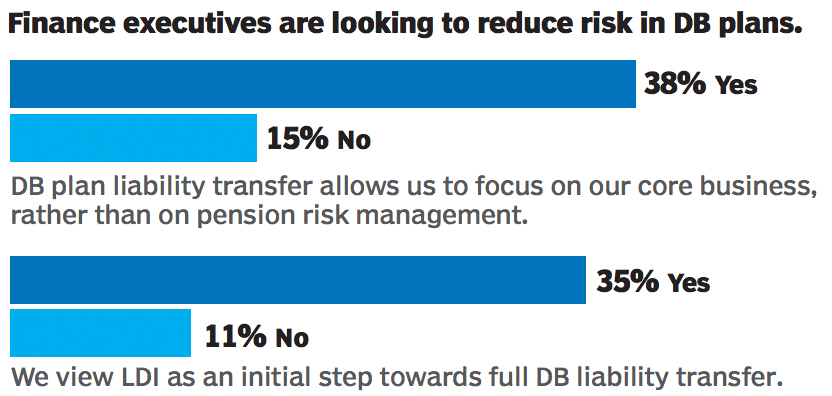UK pension funds could benefit from a vote to exit the European Union (EU) next month—but only in the short term, according to a report from a leading industry body.
“The assumption that a ‘stay’ vote would entirely remove uncertainty about Britain’s continuing membership of the EU is open to question.”The country’s combined corporate pension deficit—estimated to be £270 billion ($391 billion) at the end of April—could fall significantly in the immediate aftermath of the June 23 referendum, reported the Society of Pension Professionals (SPP). It estimated that a rise of 0.3% would cut £70 billion from defined benefit (DB) pensions’ combined liabilities.
A vote in favor of ‘Brexit’ would “provide a slight boost to pension finances in the short term, although the longer-term impact is harder to gauge,” the group said.
While markets are expected to react negatively to the uncertainty ensuing from a Brexit vote, the SPP said subsequent higher yields on index-linked bonds would “benefit most pension schemes, as they have not completely hedged their liabilities.”
Similarly, a weakened sterling would also benefit pension funds that have not hedged out overseas exposure, according to the SPP.
But the society warned that longer-term risks were far less certain, as there was no plan yet agreed on for how the UK’s relationship with Europe would evolve following an exit.
“In all likelihood, a vote to leave would change nothing material in the short term,” the SPP said. “The resulting period of uncertainty would likely have a detrimental impact on financial markets—and therefore pension funds. On the other hand, the assumption that a ‘stay’ vote would entirely remove uncertainty about Britain’s continuing membership of the EU is open to question.”
Away from investment issues, the report highlighted potential savings from the ability to opt out of European legislation. It cited research from the Department for Work and Pensions, suggesting that “freedom from EU regulation could result in the UK pensions industry avoiding potentially crippling future measured deficits of at least £450 billion.”
UK pensions could also avoid solvency rules if the country exits Europe, the report said. The European Insurance and Occupational Pensions Authority (EIOPA) last month introduced watered-down reporting system for the funding levels of defined benefit plans.
EIOPA has said UK pensions would be liable for the bulk of €300 million ($339 million) in implementation costs, as the country’s regime is decidedly different from most other EU member states.
“The chances of a solvency regime for the UK is pretty much zero should Brexit occur,” said Robin Penfold, chair of the SPP’s investment committee. “That chance is much higher if we’re in the EU.”
The SPP’s membership includes pension managers, actuaries, consultants, and asset managers.
Related:What Brexit Means for Real Assets & ‘Brexit’ Fears Mount for Asset Managers

 Source: Prudential’s “Closing the Gap in DB Plans”
Source: Prudential’s “Closing the Gap in DB Plans”